Acta Biomaterialia Gold Medal
The deadline for nominations for all Acta Materialia and Acta Biomateriala awards is February 1st each year. For the Acta Materialia Silver medal and the Acta Biomaterialia Silver medal, the nominees must be 45 years or younger on December 31 the previous year.
The Acta Biomaterialia Gold Medal recognizes demonstrated leadership in the field of Science and Engineering of Biomaterials. It rewards either
- materials research that has had a significant and lasting impact on the development of the discipline, or
- recent work of great originality.
The awardee should be a recognized world leader in the field of biomaterials, whose accomplishments in discovery and translation to practice are surpassing and well known in the field.
With this distinction Acta Materialia, Inc. not only intends to honor outstanding contributions to the field but also to improve the awareness of the fundamental importance and diversity of materials research, both within the community and the public at large.
The Acta Biomaterialia Gold Medal Award consists of a gold medal, an inscribed certificate, and a cash prize of US$10,000.
Candidates for this award may be proposed by any scientist/engineer/practitioner or any biomaterials related society, previous Acta Biomaterialia award recipients, Sponsoring or Cooperating Societies of Acta Materialia, Inc., and Editors of the Acta Materialia journals.
The nomination package should contain
- Curriculum vitae
- Statement by the nominator specifying the candidate’s suitability for the award**
- Letters of support from up to three distinguished scientists in the field
- Citation of not more than 30 words
**Please emphasize the nominee’s impact on their research field, rather than the metrics on their publications.
Nominations remain in effect for three years unless withdrawn or re-endorsed, with an additional justification, for an additional two-year period. Current members of the Acta Materialia Board of Governors and of the Award Selection Committee are not eligible.
The Award Selection Committee is formed of five judges, themselves distinguished biomaterials scientists.
The Acta Biomaterialia Gold Medal is awarded each year, unless the judges feel no candidate is qualified. The presentation is made at a venue approved by the Acta Materialia Executive Committee. The Award will not be bestowed in absentia except under extraordinary circumstances.
Nominations should be submitted to the Executive Secretary (Prof. Carolyn Hansson, [email protected]), as a single file document preferably in PDF or Word format.
Acta Materialia, Inc.
Acta Materialia, Inc. (http://www.actamaterialia.org) is a non-profit organization representing 36 professional societies worldwide. It is dedicated to disseminating the knowledge of science and engineering of materials, primarily by publishing high quality journals covering all aspects of the multidisciplinary field of materials science and engineering, including biomaterials, nanomaterials, materials chemistry and physics. The corporation publishes four journals in collaboration with Elsevier: Acta Materialia, Scripta Materialia, Acta Biomaterialia, and Materialia.
Acta Biomaterialia Gold Medal Award Recipients
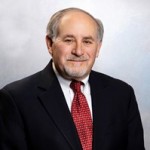
Frederick Schoen
The recipient of the 2025 Acta Biomaterialia Gold Medal Award is Frederick J. Schoen. Dr. Schoen is Vice Chair for Faculty Affairs in the Department of Pathology at Brigham and Women’s Hospital (BWH) and Professor of Pathology and Health Sciences and Technology, Harvard Medical School (HMS) in Boston, Massachusetts, USA. He will receive the award at the Society For Biomaterials Annual Meeting in Chicago, IL, April 9-12, 2025.
Dr. Schoen earned a BSE in Materials and Metallurgical Engineering from the University of Michigan, a PhD in Materials Science from Cornell University, an MD from the University of Miami School of Medicine, and he completed a Surgery internship, residency in Pathology and fellowship in Cardiovascular Pathology.
Dr. Schoen was one of the first biomaterials scientists to show how the combined skills of a physician-engineer-scientist could shape how we think about disease and therapeutics. He has contributed to the development of the fields of translational biomaterials, interventional cardiovascular pathology, and biomedical engineering as academic disciplines. Dr. Schoen’s impact is manifest through the breadth and depth of his expertise and leadership in education, mentoring, professional service, cardiovascular pathology, and his research on mechanical and biological heart valve substitutes, cardiac valve biology and tissue engineering. He is most widely recognized for his work on the biology of native heart valves and the development of valve replacement materials and devices, specifically through his work on pyrolytic carbon, valve failure mechanisms, calcification mechanisms in bioprosthetic heart valves and anti-calcification therapies, heart valve tissue engineering, and approaches to analyzing retrieved surgical implants.
Over a career spanning five decades, Dr. Schoen has demonstrated leadership of and extended commitment to forward-thinking education and mentoring in health care innovation, translational biomedical engineering and faculty development and diversity. He has inspired countless students at all levels to consider the impact and satisfaction of multidisciplinary collaboration and training in their career development. He was the first Associate Director of the Harvard-MIT Division of Health Sciences and Technology (HST), and he founded and directed courses in Pathology, Biomaterials and Tissue Engineering, Medical Device Development, and mentoring for translational research. At the Harvard Catalyst (a consortium of Harvard-related institutions dedicated to translational research and innovation), he built a Mentoring Program (emphasizing mentor development and mentee empowerment) for scientists and physician-scientists intending careers in translational medicine.
Dr. Schoen’s contributions have been recognized by the Clemson Award for Applied Biomaterials Research, the Founders Award and the Technology Innovation and Development Award from the Society For Biomaterials. He has received the Distinguished Achievement Award from the Society for Cardiovascular Pathology, the HST London Teaching Award, and the Senior Faculty Mentor Award and the Faculty Development and Diversity Award from BWH. He is a Founding Fellow of the American Institute of Medical and Biological Engineering and received its Professional Impact Award for Leadership. He authored Interventional and Surgical Cardiovascular Pathology: Clinical Correlations and Basic Principles (1989), which established a new sub-specialty in Pathology. Subsequently he was founding co-editor through 3 editions of Biomaterials Science: An Introduction to Materials in Medicine, a leading comprehensive book in biomaterials science and associated clinical applications, and co-editor of Cardiovascular Pathology 3rd edition. Dr. Schoen is a Past-President of the Society For Biomaterials, the Society for Cardiovascular Pathology and the International Society for Applied Cardiovascular Biology, and a past member of the Scientific Advisory Board of the Massachusetts Life Sciences Center. He serves or has served on many national and international academic and governmental advisory committees, grant review committees and editorial boards, and is a scientific advisor to medical device companies.
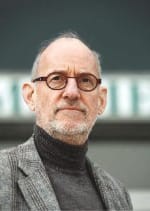
Patrick Couvreur
The recipient of the 2024 Acta Biomaterialia Gold Medal is Dr. Patrick Couvreur, Professor Emeritus of Pharmacy at the Paris-Saclay University, member of the French Académie des Sciences and holder of the chair of “Innovations Technologiques” (2009-2010) at the prestigious Collège de France.
Prof. Couvreur was appointed as a Senior Member of the “Institut Universitaire de France” in 2009. He has held many important national and international academic positions as Director of the UMR CNRS 8612, Founder and Director of the Doctoral School “Therapeutic Innovation” at Paris-Sud University and founding member of the pole of competitivity MEDICEN. For 30 years (1985-2015), Dr. Couvreur was also an Extraordinary Professor at the University of Louvain (Belgium) and an invited professor in many other universities. He served as a member of the board of governors of many international scientific organizations including the International Pharmaceutical Federation , the Controlled Release Society , and the European Federation of Pharmaceutical Scientists (EUFEPS). Since 2014, he has been a member of the LS-7 panel of the European Research Council (ERC consolidator grant) and has been named the Chair of the panel in 2016, 2018 and 2020. He has served on many scientific committees in France including Institut Pasteur, ENS Cachan, Academic Council of Paris-Saclay University, Scientific Committee of the Région Centre, Comité National of the CNRS, Conseil National des Universités CNU, Board of Governors of Ecole Pratique des Hautes Etudes, President 2020 of the Académie Nationale de Pharmacie, and Comité Restreint of the Académie des Sciences.
Prof. Couvreur’s major contributions in the field of drug delivery and nanomedicine are highly recognized around the world. His research is interdisciplinary, aiming at developing new nanomedicines for the treatment of severe diseases, including cancer, neurological disorders, and intracellular infectious diseases. This research stands at the interface between physico-chemistry of colloids, polymer chemistry, material science, pharmaceutical formulation, cellular and molecular biology and experimental pharmacology. His research has led to the funding of three start-up companies (Bioalliance, Medsqual and Squal Pharma). Bioalliance (now ONXEO) entered the stock market in 2005 and a nanomedicine invented in Prof. Couvreur’s lab has reached a complete phase III clinical trial for the treatment of resistant hepatocarcinoma.
These major scientific contributions to the pharmaceutical sciences are also recognized by numerous international awards: the 2004 Pharmaceutical Sciences World Congress Award, the prestigious Host Madsen Medal, the European Pharmaceutical Scientist Award of the European Federation of Pharmaceutical Sciences, the European Inventor Award 2013 given by the European Patent Office, the Speiser’s award from ETH, the Higuchi Award 2015, Japan, and the 2022 Presidential Award of EUFEPS. Prof. Couvreur’s national awards include: the Grand Prix de l’Innovation of L’Usine Nouvelle 2008, the Prix Galien 2009, the Médaille de l’Innovation 2012 of the CNRS and the Grand Prix Achille le Bel 2020. He is also a Doctor Honoris Causa of the Universities of Ghent (Belgium) and Montréal (Canada). Another recognition of major scientific and scholarly contributions of Patrick Couvreur is his appointment as a member of multiple academies: Académie des Sciences, Académie des Technologies, Académie Nationale de Médecine and Académie Nationale de Pharmacie in France, as well as, the European Academy of Sciences, the Académie Royale de Médecine in Belgium, the Royal Academy of Pharmacy in Spain, the National Academy of Medicine and the National Academy of Engineering, two of the three National Academies in USA. He is also an International Fellow of the Academy of Pharmaceutical Sciences and Technology in Japan.
By a decree of the President of the French Republic, Dr. Patrick Couvreur has been appointed as Chevalier de la Légion d’Honneur (Knight of the Legion of Honour).
Professor Couvreur will receive the Acta Biomaterialia Gold Medal at the 2024 World Biomaterials Congress to be held in Daegu, South Korea, in May 2024.
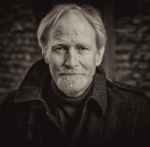
Clemens van Blitterswijk
After graduating as a Cell Biologist at Leiden University in 1982 he defended his PhD thesis on artificial ceramic calcium phosphate implants at the same University in 1985. This early work was already recognized by several national and international awards and gave him insight into the mechanisms of bone bonding, biodegradation and the interactions between materials and host in an infected environment.
While initially using tissue culture of mesenchymal stem cells for biocompatibility testing, it became evident that the cultured tissue (mineralized bone tissue) may actually serve as a bone substitute by itself. This became the main focus of the research group from the early 1990’s, thus becoming one of the first movers in the field of tissue engineering in general and bone tissue engineering, specifically. The first clinical trials of bone were not as good as suggested by earlier animal experiments but they gave insights into the hurdles that needed to be overcome in order to make tissue engineering clinically applicable. In the early stages of the tissue engineering efforts, the group around Prof. van Blitterswijk was convinced that the cell was key to clinical success, much more so than the scaffold material. However, it became clear over time that the material component was at least as important. This triggered a research line on osteoinductive scaffolds that continues until today.
Nevertheless, Prof. van Blitterswijk and his coworkers, in the early 2000’s, were dissatisfied by the inefficient way in which new biomaterials were developed. In general, small series of materials would be assessed over several years in a few models to test hypotheses for better material performance. If that didn’t work it would start all over again, losing precious time. It was the groups’ vision that, in view of the complex nature of material/recipient interactions and the relatively limited fundamental knowledge on material performance in a biological setting, this process was at best suboptimal. This led to the concept of Materiomics, where millions of material surface structures would be designed as the basis of a library from which thousands would be selected to be tested in high throughput screening, using the principles of machine learning. Work which these days is still the main focus of the group.
Similar to the Materiomics approach, which embraced, rather than denied, the lack of predictability of material performance in a biological setting, the group in parallel ventured into the area of self assembly and self organization to build 3D tissues in high throughput. Again, the concept was that the currently available fundamental scientific knowledge was insufficient to efficiently and predictably guide tissue formation and that it would be beneficial to rather trigger this by having the tissues organize themselves by only few clues; clues that could be discovered by high throughput testing. This, more recently, led to the group being at the very forefront of synthetic embryo research while building complex mouse embryo like structures (blastocysts) in vitro in high throughput without the use of either sperm cells or oocytes, using the principles of self organization. This field is currently developing very fast internationally and it may well contribute to the advance of regenerative medicine in many ways.
During his career Professor Clemens van Blitterswijk has been a strong proponent of the necessity of active collaboration between university researchers and industry in order to efficiently bring technology to patients. As such, he acted as founder or cofounder of many university spin-offs and investment funds. He is very proud to have been allowed to serve as the catalyst for the scientific career of a substantial number of individuals who have successfully built groups of their own at many locations over the world and he is very grateful to have had the opportunity to work with so many smart young scientists.
Professor Van Blitterswijk will receive the Acta Biomaterialia Gold Medal at the Society for Biomaterials meeting to be held in San Diego, CA, April 19-22, 2023.
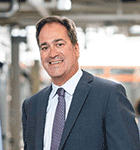
Chad Mirkin
The recipient of the 2022 Acta Biomaterialia Gold Medal is Professor Chad A. Mirkin, the director of the International Institute for Nanotechnology and the George B. Rathmann Professor of Chemistry at Northwestern University.
“I’m delighted to receive the Gold Medal Award,” said Professor Mirkin. “We have worked for three decades to try to develop biomaterials that make a difference in many critical fields, for example, chemistry, materials science, biology and medicine. This honor is a wonderful recognition for the efforts of many talented students and postdoctoral fellows, who have expanded the frontiers of science and made discoveries that have positively impacted human-kind.”
A world-renowned expert in nanoscience and nanomedicine, Professor Mirkin is best known for the discovery and development of spherical nucleic acids, which are synthetic globular – rather than linear – forms of DNA and RNA that surround a nanoparticle core. Roughly 50 nanometers (nm) in diameter, these nanostructures possess the ability to actively enter cells for targeted treatment delivery.
SNAs have been used in paradigm-shifting approaches to anti-cancer immunotherapies, vaccine design, and high-sensitivity molecular diagnostic tools. They are the basis for more than 1,800 commercial products to date, including one of the first FDA-cleared, menu-driven, point-of-care medical diagnostic systems; platforms capable of analyzing the genetic content of single living cells; and treatment of skin disorders and cancers via gene regulation and immunomodulatory pathways. SNA-based drugs are currently in clinical trials for diseases spanning psoriasis, glioblastoma and triple negative breast cancer.
Professor Mirkin is also known for the invention of dip-pen nanolithography, a technique for patterning molecules and materials on surfaces with sub-50 nm resolution, which was recognized by National Geographic as one of the “top 100 scientific discoveries that changed the world”; and the high-area rapid printing technology, a 3D printing process that can produce hard, elastic, or ceramic parts at record-breaking throughput.
As the founding director of Northwestern’s International Institute for Nanotechnology (IIN), Mirkin leads an organization that represents more than $1 billion in research, educational programs, and supporting infrastructure. The IIN brings together more than 200 chemists, engineers, biologists, physicians, and business experts to focus on society’s most perplexing problems in areas such as medicine, energy, and the environment.
With more than 1,200 issued and pending patents worldwide, Dr. Mirkin has played a significant role in translating his scientific discoveries into technologies that are changing the world. He is the founder of several successful start-up companies, including Azul 3D (print-on-demand manufacturing), Exicure (gene regulation and cancer immune-therapies), Stoicheia (AI-enabled materials discovery), and TERA-print (nanofabrication). His diagnostic inventions are the foundation of Luminex’s VerigeneTM system that is used in many of the world’s top hospitals, resulting in better patient care, reduced antibiotic resistance, and lower health care costs.
Professor Mirkin is also a Professor of Medicine at Northwestern’s Feinberg School of Medicine and a Professor of Chemical and Biological Engineering, Biomedical Engineering, and Materials Science and Engineering in the McCormick School of Engineering. He earned a B.S. from Dickinson College and a Ph.D. in chemistry from Pennsylvania State University, and was an NSF Postdoctoral Fellow at the Massachusetts Institute of Technology before joining Northwestern.
He is among an elite group of scientists, engineers and medical doctors to be elected to all three branches of the U.S. National Academies – the National Academy of Sciences, the National Academy of Engineering and the National Academy of Medicine. He served on President Barack Obama’s Council of Advisors on Science and Technology from 2009-16.
He has trained over 120 scientists, who are now faculty members at some of the world’s premier universities, and he has been recognized with more than 230 national and international awards, including the SCI Perkin Medal, the Friendship Award, the Nano Research Award, the Raymond and Beverly Sackler Prize in Convergence Research, the Dan David Prize, the Wilhelm Exner Medal, the RUSNANOPRIZE, the Dickson Prize in Science, the American Institute of Chemists Gold Medal, the $500,000 Lemelson-MIT Prize, the Kabiller Prize in Nanoscience and Nanomedicine, and the AAAS Philip Hauge Abelson Prize.
He will receive the award at the Society for Biomaterials meeting April 27-30, 2022 in Baltimore MD.
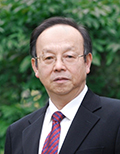
Xingdong Zhang
The recipient of the 2021 Acta Biomaterialia Gold Medal is Professor Xingdong Zhang of Sichuan University, China.
Professor Xingdong Zhang, born in 1938, graduated from Sichuan University with a major in solid state physics in 1960 and has been working at Sichuan University since. He studied biomaterials at Queen Mary University of London for half a year as a senior visiting scholar from 1987 to 1988. He has been awarded Honorary Doctorates from Macau University of Science and Technology, China and University Polytechnica of Bucharest, Romania in 2016 and 2019, respectively.
Professor Zhang started his biomaterials research in 1983 focusing on fundamental science and the transformation of bioactive materials and regenerative medicine, mainly involving treatments for the musculoskeletal system. In the 1980s, his research group was the first in China to develop hydroxyapatite ceramics, plasma-spray coatings, titanium dental implants and total hip replacements with hydroxyapatite coatings. In the 1990s, his team found that porous calcium phosphate bioceramics can induce bone regeneration and then developed osteoinductive artificial bone products for clinical use. In the 2000s, they found that type I collagen-based hydrogel could induce bone marrow stromal cells to differentiate along a chondrogenic lineage, which was used to regenerate articular cartilage through tissue engineering. Based on further research on the mechanism of tissue regeneration induced by materials, he proposed the concept of “tissue inducing biomaterials”, i.e. biomaterials designed to induce the regeneration of damaged or missing tissues or organs without the addition of cells and/or bioactive factors. The concept is included in Definitions of Biomaterials for the Twenty-first Century (Zhang, X. and Williams, D., Elsevier, 2019). He has established three companies to translate these research results into clinical applications.
Professor Zhang is the co-founder and Honorary President of the Chinese Society for Biomaterials, as well as the senior consultant to the National Medical Products Administration (NMPA) of China. He has also established the National Engineering Research Center for Biomaterials, which was the first professional biomaterials research organization in China, as well as the Research Base of Regulatory Science for Medical Devices of the NMPA and the Engineering Research Center for Materials Genome.
Actively engaged in international cooperation since the 1990s, Professor Zhang has been appointed to professional positions or bestowed honorary titles by several leading universities and institutions. Examples of these include Foreign Promoter (PhD supervisor) at the University of Leiden, the Netherlands from 1994 to 2003, Research Advisor at the National Institute for Materials Science, Japan from 2005 to 2007, University Distinguished Professor at Northeastern University, USA from 2018, and President of the International Union of Societies for Biomaterials Science and Engineering (IUSBSE) from 2016.
Professor Zhang has also received numerous awards, including two Chinese National Awards of Science and Technology, Outstanding Contribution Award (CSBM), the 2015 Clemson Award for Applied Research (USA), 2015 Ho Leung Ho Lee Prize for Scientific and Technological Progress, Sharma International Award from the Society for Biomaterials and Artificial Organs (India), and Hashiguchi Lungi Fund Award (Japan), just to name a few. He is also a Member of the Chinese Academy of Engineering, Foreign Member of the U.S. National Academy of Engineering, Fellow of the International Union of Societies for Biomaterials Science and Engineering and Fellow of the American Institute of Medical and Biological Engineering.
Professor Zhang will receive the Acta Biomaterialia Gold Medal at the annual meeting of SFB to be held in Chicago, USA in April 2021.
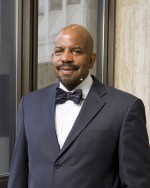
Cato T. Laurencin
The recipient of the 2020 Acta Biomaterialia Gold Medal is Professor Cato T. Laurencin of the University of Connecticut. An engineer, surgeon and scientist, Prof. Laurencin earned his B.S.E. degree in Chemical Engineering from Princeton University. He earned his Ph.D. in Biochemical Engineering/Biotechnology from the Massachusetts Institute of Technology, where he was named a Hugh Hampton Young Fellow, and earned his M.D., Magna Cum Laude,from the Harvard Medical School where he also received the Robinson Award for Surgery.
Prof. Laurencin serves as a University Professor at the University of Connecticut (the highest academic title and the 8th in the institution’s over 135-year history). He is a Professor of Chemical and Biomolecular Engineering, Materials Science and Engineering, and Biomedical Engineering, and is the Albert and Wilda Van Dusen Distinguished Endowed Professor of Orthopaedic Surgery. He is also a Chief Executive Officer of the Connecticut Convergence Institute for Translation in Regenerative Engineering.
Prof. Laurencin is known as a world leader in biomaterials, nanotechnology, stem cell science, drug delivery systems, and a new field that he has pioneered, regenerative engineering. Prof. Laurencin has produced seminal studies in a number of areas of biomaterials. He and his colleagues were the first to develop nanofiber technologies for tissue regeneration. The seminal paper appeared on the cover of the Journal of Biomedical Materials Research, in its “Top 25 Biomaterials Papers of the Past 50 Years” edition. His group pioneered the development of polymer-ceramic systems for bone regeneration. The American Institute of Chemical Engineers cited this achievement in naming him one of the 100 Engineers of the Modern Era. He has received the Clemson Award for Contributions to the Biomaterials Literature, and the Founder’s Award, both from the Society for Biomaterials.
Prof. Laurencin’s work has had tremendous impact on many fields. The American Institute for Medical and Biological Engineering awarded him the Pierre Galletti Award, medical and biological engineering’s highest honor, while the Association of Bone and Joint Surgeons awarded him the Nicolas Andry Award, its highest honor. His work was honored by the Scientific American Magazine as one of the 50 greatest achievements in science in 2007. In 2012, his work was highlighted by the National Geographic Magazine in its “100 Discoveries That Have Changed Our World” edition. In 2019, the American Association for the Advancement of Science awarded the Philip Hauge Abelson Prize, given for “signal contributions to the advancement of science in the United States”, to Prof. Laurencin.
Prof. Laurencin has had two awards named in his honor: The Cato T. Laurencin, M.D., Ph.D. Travel Fellowship Award given by the Society for Biomaterials, and The Cato T. Laurencin Lifetime Research Achievement Award given by the Cobb/National Medical Association Health Institute.
Prof. Laurencin is the recipient of the National Medal of Technology and Innovation. It is the highest honor bestowed in the United States for technological achievement.
Prof. Laurencin is an elected member of the National Academy of Engineering and an elected member of the National Academy of Medicine. Internationally, he is an elected Fellow of the African Academy of Sciences, a Fellow (Foreign) of the National Academy of Sciences of India, the Indian National Academy of Engineering and The World Academy of Sciences. Prof. Laurencin is an Academician and elected member (Foreign) of the Chinese Academy of Engineering.
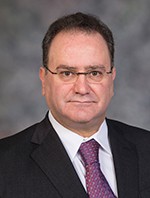
Antonios G. Mikos
The recipient of the 2019 Acta Biomaterialia Gold Medal is Professor Antonios G. Mikos, Louis Calder Professor of Bioengineering and Chemical and Biomolecular Engineering at Rice University. The Award will be presented at the 2019 U.S. Society for Biomaterials Annual Meeting and Exposition to be held in Seattle, WA, in April 2019.
Professor Mikos received his Dipl.Eng (1983) from the Aristotle University of Thessaloniki, Greece, and his Ph.D. (1988) in chemical engineering from Purdue University. He was a postdoctoral researcher at the Massachusetts Institute of Technology and the Harvard Medical School before joining the Rice Faculty in 1992 as an assistant professor where he has remained since.
Professor Mikos’ research focuses on the synthesis, processing, and evaluation of new biomaterials to be used as scaffolds for tissue engineering, as carriers for controlled drug delivery, as non-viral vectors for gene therapy, and as platforms for modeling diseases. His work has led to the development of novel orthopaedic, dental, cardiovascular, neurologic, and ophthalmologic biomaterials.
Professor Mikos is a Member of the National Academy of Engineering, the National Academy of Medicine, the International Academy of Medical and Biological Engineering, the Academy of Medicine, Engineering and Science of Texas, and the Academy of Athens. He is a Founding Fellow of the Tissue Engineering and Regenerative Medicine International Society, as well as a Fellow of the American Association for the Advancement of Science, the American Institute of Chemical Engineers, the American Institute for Medical and Biological Engineering, the Biomedical Engineering Society, the Controlled Release Society, the International Union of Societies for Biomaterials Science and Engineering, and the National Academy of Inventors.
Professor Mikos has been recognized by various awards including the Lifetime Achievement Award of the Tissue Engineering and Regenerative Medicine International Society-Americas, the Founders Award and the Clemson Award for Contributions to the Literature of the Society For Biomaterials, the Robert A. Pritzker Distinguished Lecturer Award and the Shu Chien Achievement Award of the Biomedical Engineering Society, the Excellence in Surface Science Award of the Surfaces in Biomaterials Foundation, the Alpha Chi Sigma Award for Chemical Engineering Research and the James E. Bailey Award in Biological Engineering of the American Institute of Chemical Engineers, the Meriam/Wiley Distinguished Author Award of the American Society for Engineering Education, the Edith and Peter O’Donnell Award in Engineering of the Academy of Medicine, Engineering and Science of Texas, the Marshall R. Urist Award for Excellence in Tissue Regeneration Research of the Orthopaedic Research Society, and the Distinguished Engineering Alumnus Award of Purdue University.
Professor Mikos is a founding editor and editor-in-chief of the journals Tissue Engineering Part A, Tissue Engineering Part B: Reviews, and Tissue Engineering Part C: Methods. He is the organizer of the continuing education course, Advances in Tissue Engineering, offered annually at Rice University since 1993. He is also the Past-President of the Tissue Engineering and Regenerative Medicine International Society-Americas and the Society For Biomaterials.
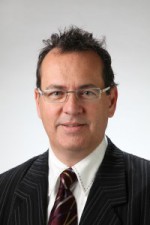
Jeffrey Hubbell
The recipient of the 11th Acta Biomaterialia Gold Medal is Jeffrey Hubbell, Eugene Bell Professor in Tissue Engineering in the Institute for Molecular Engineering of the University of Chicago.
Professor Hubbell holds a BS from Kansas State University and a PhD from Rice University, both degrees being in chemical engineering. He was elected to the US National Academy of Engineering in 2010 and the National Academy of Inventors in 2014. Prior to moving to Chicago, he was on the faculty of the Swiss Federal Institute of Technology Lausanne (EPFL, where he served as founding Director of the Institute of Bioengineering and Dean of the School of Life Sciences), the Swiss Federal Institute of Technology Zurich and University of Zurich, the California Institute of Technology, and the University of Texas in Austin.
Professor Hubbell uses biomaterials and protein engineering approaches to investigate topics in regenerative medicine and immunotherapeutics. In regenerative medicine, he focuses on biomaterial matrices that mimic the extracellular matrix and on growth factor - extracellular matrix interactions, working in a variety of animal models of regenerative medicine. In immunotherapeutics, he focuses on nanomaterials in vaccines that target lymphoid-resident antigen presenting cells and on protein engineering approaches to deliver antigen to the spleen and liver for inverse vaccines to induce tolerance to protein drugs and in autoimmunity. His interests are both basic and translational, having founded or co-founded several biomedical companies based on his technology, including Focal, in Boston, acquired by Genzyme; Kuros Biosciences, in Zurich, in the domain of regenerative medicine; Anokion and Kanyos Bio, in Boston, both in the domain of immunological tolerance; and Clostra Bio, in Chicago, in the domain of food allergy.
The Gold Medal will be presented to Professor Hubbell at the 2018 Meeting of the Society for Biomaterials in Atlanta, GA.
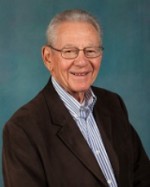
Allan S. Hoffman
Education
1953, BS in Chemical Engineering, MIT (Cambridge, Mass.)
1955, MS in Chemical Engineering, MIT
1957, ScD in Chemical Engineering, MIT
Academic Career (MIT and University of Washington)
2010-present Professor Emeritus, Bioengineering, University of Washington, Seattle, WA
2009-2014 World Class University (WCU) Distinguished Professor (part-time), Kyungpook National University Medical School, Daegu, So. Korea
1970-2010 Professor, Bioengineering and Chemical Engineering, University of Washington, Seattle, WA
1973-1983 Assistant Director, Center for Bioengineering, University of Washington, Seattle, WA
1964-1970 Associate Professor, Chemical Engineering, M.I.T. Cambridge, MA
1958-1960 Assistant Professor, Chemical Engineering, M.I.T., Cambridge, MA
1954-1956 Instructor, Chemical Engineering, M.I.T., Cambridge, MA and 1954-55 Assistant Director, M.I.T., Chemical Eng’g Practice School, Oak Ridge, TN
Selected Honors, Recognitions and Awards
(NOTE: This list includes only a selected few of many invited lectures, including plenary and keynote lectures, given over the past 40+ years at conferences, universities and companies in the US and overseas)
2015 Hoffman Family Symposium 3 will take place in Seoul Korea, in March, 2015.
2014
- Presented 2 Invited lectures in a short course on Biomaterials at Havana University, Havana Cuba, November, 2014
- Presented an Invited Lecture at the Symposium on Innovative Polymers for Drug Delivery, Soochow University, Suzhou, China, September, 2014
- Presented four invited class lectures at Sichuan University, Chengdu, China, September, 2014
- A special symposium in my honor, called the “Hoffman Family Symposium 2”, was held March 23-25 at the National Institute of Materials Science (NIMS) in Tsukuba, Japan. Over 80 scientists attended from Japan, Korea, Singapore, China, Taiwan, Canada and the US. Many were scientists with whom I have collaborated (mostly from Japan and Korea) over the past 40 years.
2013
- Invited Special Symposium Lectures: Zhejiang Univ, Hangzhou, China, Dec. 2013
- Invited Plenary Lecture: Royal Society of Chemistry, 11th Materials Chemistry Conference, MC11, Warwick, UK, July, 2013
- Invited Keynote Lecture: European Soc. Biomaterials, Madrid, Sept. 2013
- Invited Lectures: South China University of Technology, Guangzhou, China, January, 2013; University of California at Berkeley, Feb, 2013; Chugai Pharmaceutical Corp, Gotemba, Japan, March, 2013; Tsukuba University, Tsukuba, Japan, March, 2013; Institute of Biomaterials Science, Berlin, Germany, May, 2013; Pusan National University, Busan, Korea, June, 2013; Hanyang University, Seoul, Korea, June, 2013; NanoDDS’13, UCSD, San Diego, CA, Oct. 2013; Shanghai Univ, Shanghai, China, Dec. 2013
2012
- Invited Plenary Address: 10th Conf. on Irradiation & Polymers, Krakow, Poland, October, 2012
- Invited Plenary Address: 9th World Biomaterials Congress, Chengdu, China, June 2012
2011
- Three Plenary Addresses: Molecules and Materials M3 Meeting, IMRE, Singapore, Jan., 2011; European Polymer Federation, Granada, Spain, July, 2011; ACS Polymer Division, Polymers in Medicine and Biology, Santa Rosa, CA, September, 2011
2011
- Invited Lectures: Zhongguancun Forum, Beijing, PR China; Tsinghua University Chemistry Department, September, 2011 Sungkyunkwan University, Suwon, Korea, October, 2011 Seoul National University, Seoul, Korea, October, 2011 2011 Keynote Address: International Congress on Biohydrogels, Florence, Italy, Nov. 2011
2010
- Keynote Address: Society for Biomaterials Annual Meeting, Seattle, WA, April, 2010
2009
- Plenary Address: Controlled Release Society Annual meeting, Copenhagen, Denmark, July, 2009
2007
- Founder’s Award, Controlled Release Society, USA
2007
- Keynote Address: Society for Biomaterials Annual Meeting, Chicago, April, ‘07
2006
- International Award from Society of Polymer Science, Japan
2005
- Elected to the National Academy of Engineering, USA
2003
- Chandra Sharma Award of the Society for Biomaterials and Artificial Organs of India, Mumbai, India
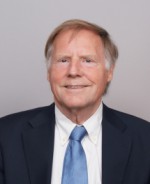
Klaas de Groot
Dr. Klaas de Groot, emeritus professor at the Tissue Engineering Group at Twente University, The Netherlands, has been awarded the highly acclaimed international 2015 Acta Biomaterialia Gold Medal Award. The award recognizes excellence in research and development in the field of biomaterials. Dr Klaas de Groot, born in 1940, is since 2008 - emeritus professor at the Tissue Engineering Group at Twente University, The Netherlands. He studied physical chemistry at Groningen University, the Netherlands, where he received his B.Sc. in 1961 and his M.Sc. in 1965. Thereafter he received a fellowship to spend two years as a post-doc at the University of North Carolina, at Chapel Hill, USA. He then returned to Groningen to obtain his PhD in 1968. In the 1980’s he started to cooperate with Chinese Universities, which led to honorary appointments at several Chinese Universities, among them Beijing University and University of Sichuan. His research concerned mainly implants to replace bone, bone joints, and teeth. He received many awards besides the already mentioned Chinese Friendship Award. To mention a few: the George Winter Award, the Clemson Award, Sir John Charnley Award, Honorary Member of the Dutch Society for Biomaterials. He was a member, and elected as a Fellow, of various professional societies such as The European society for Biomaterials (ESB) and the American Society of Biomaterials, and was co-founder of the ESB. Currently, he is still active in science as scientific advisor at the Amsterdam School of Dentistry (ACTA) department of Oral Implantology.
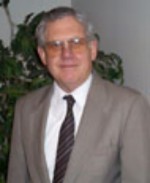
Jack Lemons
Dr. Jack Lemons received his PhD from the University of Florida in 1968 and completed his National Institute of Health-sponsored Fellowship in Medicine and Dentistry at the University of Alabama at Birmingham (UAB) in 1973. He currently serves as a university professor in the Department of Prosthodontics and Biomaterials at UAB’s School of Dentistry, where his academic responsibilities include dental prosthodontics, medical orthopaedic surgery and biomedical engineering. He also serves as Professor of the Joint Materials Science Program at the University of Alabama in Tuscaloosa, Alabama, and is an adjunct professor of prosthodontics at the University of Pittsburg School of Dental Medicine. He is a member of numerous organizations including the American Academy of Orthopaedic Surgery, the International Association for Dental Research, the American Board of Forensic Examiners and the American Association for the Advancement of Science, to name just a few. He presides over lectures for local study clubs and continuing education classes and has contributed over 40 years of education, research and service focused on the biocompatibility of synthetic origin bio- and dentalmaterials. He has sat on the editorial board of the Journal of Biomedical Materials Research and has been a section editor at the Journal of Clinical Implantology. His publications and abstracts exceed 600 titles in various peer-reviewed journals.
See more at: http://www.deardoctor.com/authors/dr-jacklemons/#sthash.W6X0vu8A.dpuf
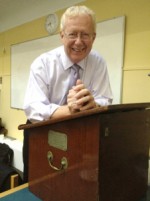
Larry Hench
Larry Hench, University Professor of Biomedical Engineering in the Florida Institute of Technology College of Engineering, has been awarded the highly acclaimed international 2014 Acta Biomaterialia Gold Medal Award. The award recognizes excellence in research and development in the field of biomaterials. Professor Hench, who is also director of the Florida Tech Center for Medical Materials and Photonics, specializes in bio-ceramics and is a member of the National Academy of Engineering (NAE). Born in Ohio in 1938, Dr. Hench received his bachelor’s degree in 1964 in ceramic engineering from The Ohio State University. After 32 years on the faculty, Hench retired from the University of Florida as Emeritus Professor to join the Imperial College, University of London, as chair of ceramic materials. There, he co-founded and co-directed the Tissue Engineering and Regenerative Medicine Centre for 10 years.
2013
James M. Anderson
U.S.A.
2012
David Williams
U.K.
U.S.A.
2011
Michael Sefton
Canada
2008
Robert Langer
U.S.A.
2010
Nicholas Peppas
U.S.A.
2009
Buddy Ratner
U.S.A.